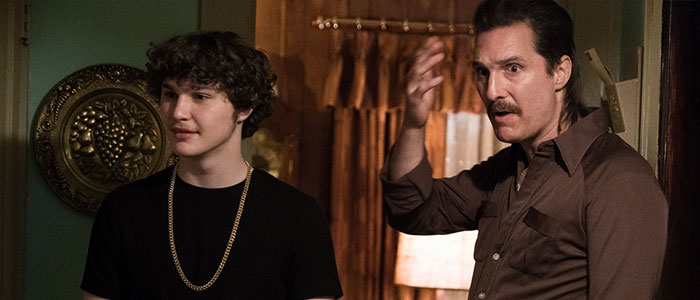
WHITE BOY RICK
***/****
starring Matthew McConaughey, Jennifer Jason Leigh, Jonathan Majors, Richie Merritt
written by Andy Weiss and Logan & Noah Miller
directed by Yann Demange
Manbiki kazoku
****/****
starring Lily Franky, Ando Sakura, Matsuoka Mayu, Kiki Kilin
written and directed by Hirokazu Kore-eda
by Walter Chaw Yann Demange's follow-up to his bruising, brilliant '71 is this ersatz Donnie Brasco true-crime epic. White Boy Rick details the rise and fall of underage drug kingpin/FBI informant Richard Wershe, Jr. (Richie Merritt–excellent), dubbed "white boy" by the black Detroit gang into which he inculcates himself as first a sort of mascot, then trusted lieutenant, then deep-cover betrayer, then ultimate usurper. White Boy Rick establishes Demange firmly as a formidable technical director. A scene set in a roller disco circa 1984 is as beautiful, lyrical, and effortless an evocation (and affectionate amplification) of time and space as the Cornelius Bros and Sister Rose dance sequence from BlacKkKlansman. A sudden spinout on an icy road later on carries with it the harsh kinetic immediacy and strong knowledge of space of Demange's '71. The film looks right and feels right. There's a scene at a drive-in where Rick takes a date to watch Footloose: a film that couldn't possibly be more alien to Rick's reality. Crucially, White Boy Rick behaves in the right way, too, demonstrating restraint when appropriate, naturalism where appropriate, and expressionism, especially in a sequence where Rick's junkie sister Dawn (Bel Powley, also excellent) is taken from a crackhouse against her will down a red-lit corridor strobed with shadows.

